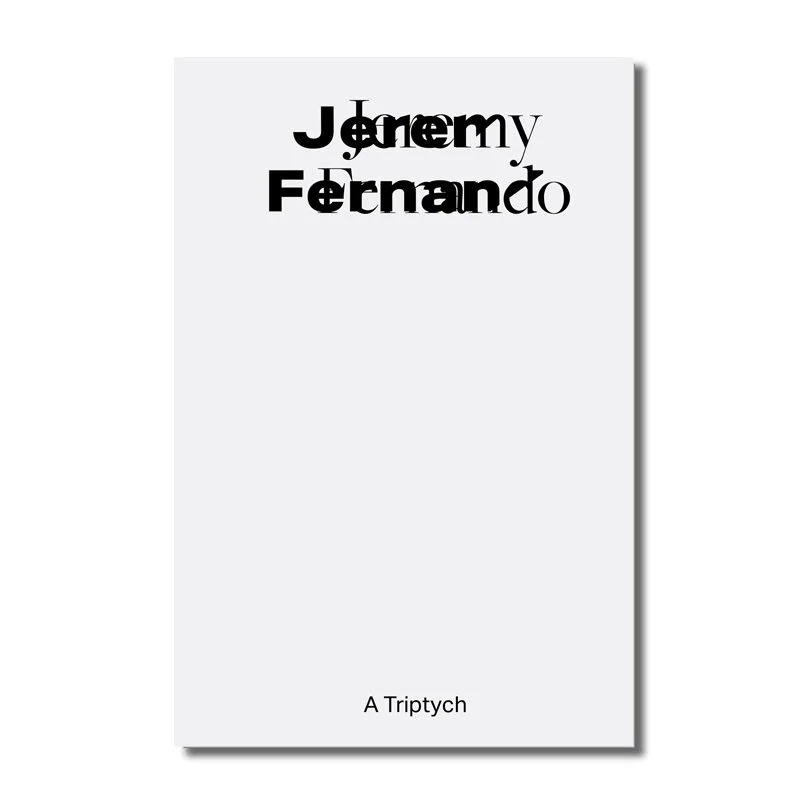jeremy fernando
Contributors
Description
So yes, this were a necessary piece for me to write.
Not to take control of the narrative: for, I neither believe in there being only one version of any story, despite what dictators would prefer; nor in control, another fiction people who give themselves titles aplenty like to hold on to.
But in order to respond to violence with art.
With all the risks of being accused - ah, hello again, old friend - of being accused of artem, of artifice.
So I shall write, with my kind of writing.
At the risk of being accused of writing itself - that taking down, inscribing, recording, taking note, is nothing more than a deferral, a refusal to remember me.
So, a writing to forget.
Perhaps.
Though it is not as if one can decide what one forgets, that one can will forgetting: if we could, we might all finally be happy. But we might just have to leave that to happenstance, chance, maybe even to Tykhe herself.
In the meantime, all I can say is: quod scripsi, scripsi.
Awards
Writing about writing, art, digital tactility and materiality, here is a brio of citation, influence and gratitude, and also a meditation on lies about sexual misbehaviour and false accusations regarded as fact (since lying is also rewriting). An important little book that not enough people will read, it tackles actual injustice, truth and the ramifications of what it means to write.
~ Cyril Wong: 'My Book of the Year 2025’ at Singapore Unbound
Responses
Your writing emerges from a body, struggling to break through the skin, that thin membrane between the inside and the outside. The dialogue with others — almost like receiving bullets, throwing bullets, throwing flowers, receiving caresses. All at once.
~ Gabriela Golder
Writing is how I talk to myself and when my writing reaches another, I hope that I'm talking to someone almost precisely like me — the impossibility. But hope remains like a hand raised in a lightless classroom of silence, even long after death. This book about writing made me articulate myself out loud; a testament to its brief power, the beauty of its articulations about what writing is across modalities of thought and reading. My response is by participating in the conversation started here; by responding through myself, with more writing; by way of communion. But make no mistake (I remind myself): this is also about accusers telling lies about sexual misbehaviour; lying is also rewriting. Lies that were believed even as the accused was “fully acquitted by the State Courts of Singapore”. Paper, art, reading, memory, digital writing, the brio of citation and gratitude of influence — these concerns unpack themselves towards the end, and I didn't want this book to end.
~ Cyril Wong
A magnificent book on art, on reading, and on personal experiences of violence and injustice. Perhaps violence and injustice always call out for words – but Fernando's words are not found in any of the usual and predictable places – in fixed answers, corrections or retaliations – but in a singular and beautiful grammar of freedom. The text escapes all the snares of advice, doctrine, and easy morals. It doesn't belong to any established order – and this makes it so very significant, moving, and meaningful.
In this eminently portable, erudite, and confessionally self-titled book, Jeremy Fernando stands, a Man accused, with only his writing as response ‘to violence with art’. Shades of Kafka hover and swoop, like vengeful wraiths, above the courtroom of personal, public and professional opinion. He opens his case, revealing his longings, belongings and dirty laundry to impartial readers, close colleagues and friends, alike. Against real-life accusations of misconduct, the author wields his masterful semantic superpower – an arsenal of ‘word missiles’ – both to defend and explain, and through explanation, enlighten. It is hard to categorise this terse, powerful triptych; part manifesto, part academic treatise, and part thought-provoking poetic exploration of lexicon and reason. But, all epistemological debate aside, this is a thought-provoking and snappy volume, pulling the reader wildly between Derrida, Duras and Depeche Mode. I was left contemplating Browning’s lines about the two-sides to every man’s soul, and how, separately, those sides tackle life and love:
“What were seen?
None knows.
None ever shall know;
Only this is sure,
The sight were Other.”
I absolutely loved it: the structure; how ruminations on writing, of writing, combined with the telling of the experience. It's surprising and ambitious, made it into something more than just an account, became something larger than the account itself, itself is already mesmerising. Told in a measured, respectful, way, I liked how it aims to be non-persuasive, when we are surrounded, inundated by persuasiveness.
~ Pan Huiting
